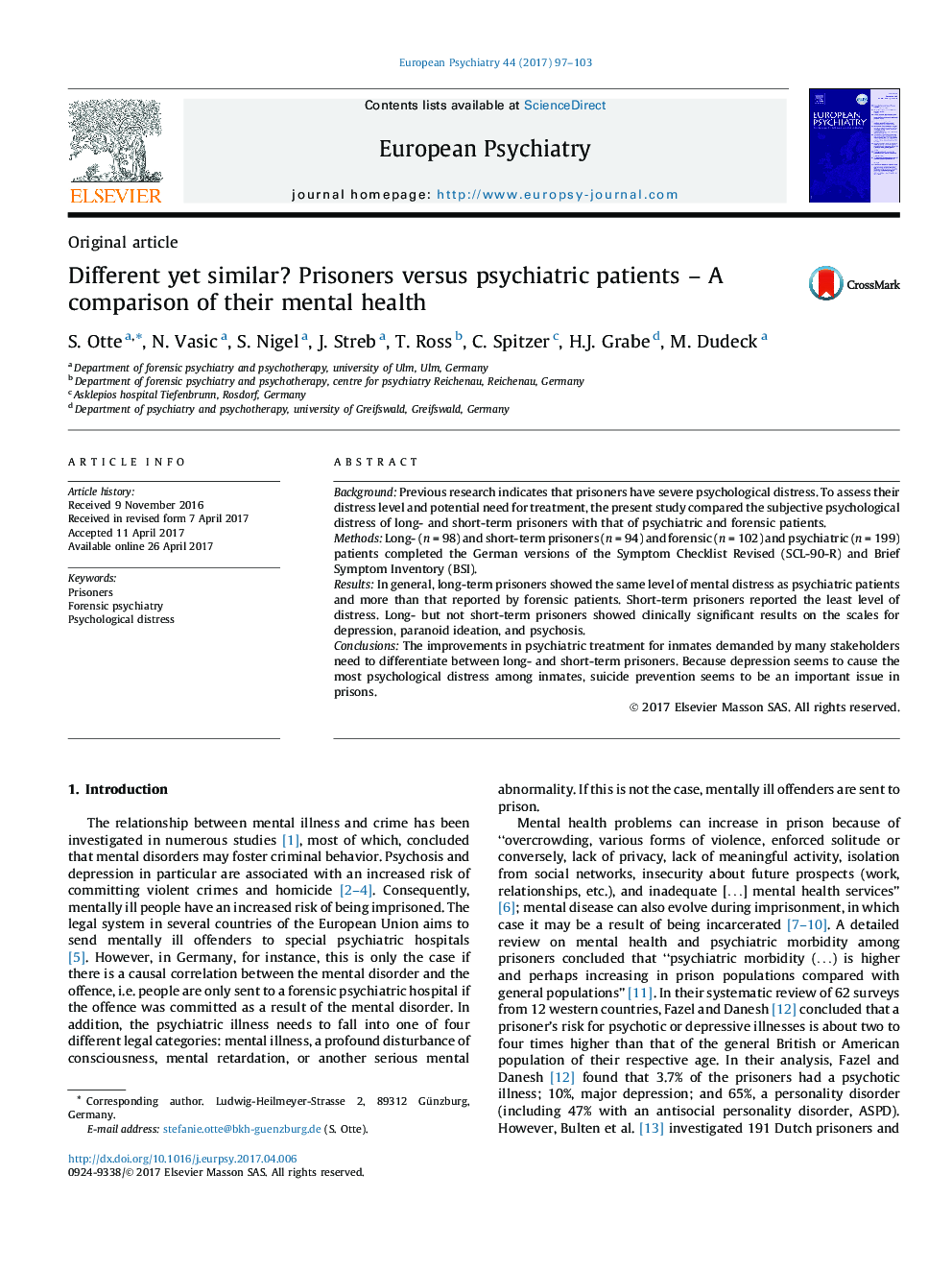| Article ID | Journal | Published Year | Pages | File Type |
|---|---|---|---|---|
| 5721397 | European Psychiatry | 2017 | 7 Pages |
BackgroundPrevious research indicates that prisoners have severe psychological distress. To assess their distress level and potential need for treatment, the present study compared the subjective psychological distress of long- and short-term prisoners with that of psychiatric and forensic patients.MethodsLong- (n = 98) and short-term prisoners (n = 94) and forensic (n = 102) and psychiatric (n = 199) patients completed the German versions of the Symptom Checklist Revised (SCL-90-R) and Brief Symptom Inventory (BSI).ResultsIn general, long-term prisoners showed the same level of mental distress as psychiatric patients and more than that reported by forensic patients. Short-term prisoners reported the least level of distress. Long- but not short-term prisoners showed clinically significant results on the scales for depression, paranoid ideation, and psychosis.ConclusionsThe improvements in psychiatric treatment for inmates demanded by many stakeholders need to differentiate between long- and short-term prisoners. Because depression seems to cause the most psychological distress among inmates, suicide prevention seems to be an important issue in prisons.
